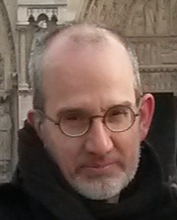
David Kellogg – Featured Speaker @ KOTESOL 2024
![]() Featured Session
Featured Session
Rote, Role, Rule: Halliday, Vygotsky, and Shakespeare on Play Development
Children play, but adults play golf, the stock market, and Shakespearean tragedies. How does the verb play go from an intransitive “activity in itself” to a transitive one that produces a visible outcome? Teachers can’t help but notice that there’s a big gap between “Listen and repeat” and “Listen and answer.” Pedagogically speaking, rote play (chants, songs, rhymes) seems worlds away from role play (scripted and unscripted dialogue). But there appears to be a similarly sized gap between role play and rule-based games that involve monologic turns of talk and narrative storytelling. In this talk, I draw on a theory of language (Halliday) and a theory of learning (Vygotsky) to explain these two gaps. But the main problem we’ll tackle is the adult meaning of the word play, and the way in which rote play, role play, and rule play are combined for everyone in the audience – the sort of “play” around which Shakespeare built modern English.
![]() Invited Second Session: Workshop
Invited Second Session: Workshop
METAPHOR IS WAR: Forming and Forgetting Science Concepts Through Language Play
In this presentation, we first consider three different views of the form of language play called metaphor. Is it word-to-word (as Shakespeare seems to think), meaning-to-meaning (as Lakoff and Johnson theorized), or both (as Halliday and Vygotsky believe)? Which view best supports the development of durable concepts? Which, for example, will explain how there can be solar wind without any air in space, or how there can be plasma waves without any water? First, I’ll show that ten years after middle school, adult Koreans don’t have much memory of their science textbook, and I’ll argue that the same thing is probably true of English. Conclusions for TESOL follow, courtesy of Vygotsky, who argues that all foreign language concepts are actually scientific ones, which is why all languages import their scientific concepts in foreign words.
 Biosketch
Biosketch
David Kellogg has an MA (distinction) in applied linguistics from the University of Essex and a PhD (vice-chancellor award) in general linguistics from Macquarie University. He has taught English in North Africa, the UK, and China, and he is currently an assistant professor in English education at Sangmyung University. Prior to Sangmyung, Dr. Kellogg taught at Hankuk University of Foreign Studies and Seoul National University of Education for fourteen years. Since coming to Korea in 1997, he has written over seventy articles in peer-reviewed scholarly journals, mostly on the nexus between Vygotsky’s cultural-historical psychology and Halliday’s systemic-functional linguistics. He is the translator, with Nikolai Veresov, of four volumes of L. S. Vygotsky’s pedogogical works (Springer, Singapore, 2019–2024). He has also published fifteen volumes of Vygotsky’s work in Korean (Sallimteo/살림터, 2010–2024). He is currently participating in research groups in Korea (translating Vygotsky’s work), China (analyzing Chinese texts), and Australia (training primary school teachers).
Select Sites
David Kellogg: ResearchGate.
David Kellogg: Academia.edu.
KOTESOL Interview with Dr. David Kellogg.
David Kellogg Interview in The English Connection (abridged version).
![]() Return to Invited Speakers webpage.
Return to Invited Speakers webpage.
![]() Return to International Conference frontpage.
Return to International Conference frontpage.

| Attachment | Size |
|---|---|
| 358.05 KB | |
| 700.37 KB |


